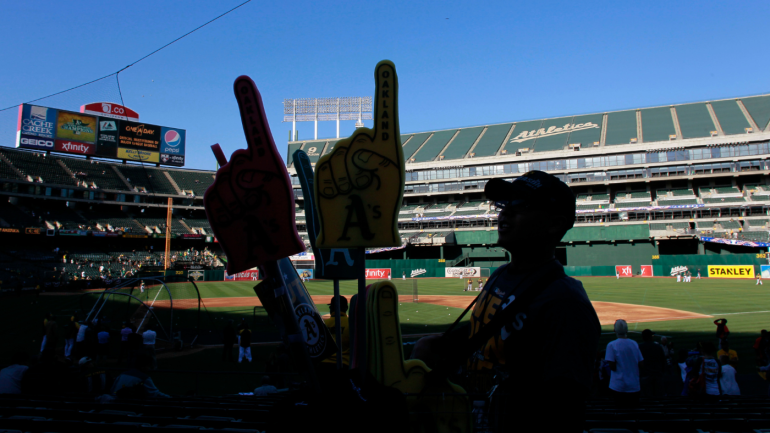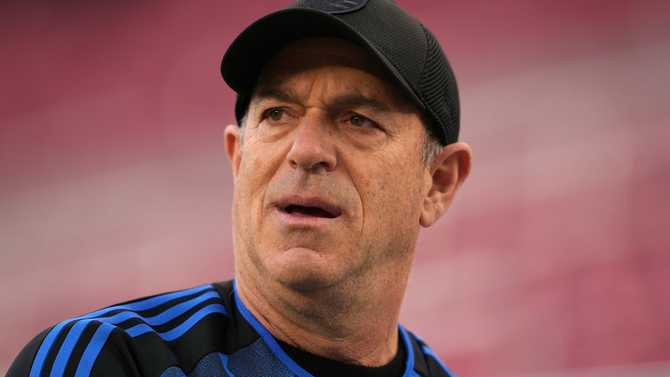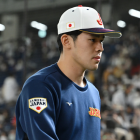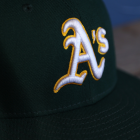
On any given summer night over the last 10 years, you could find Tony bartending at the Oakland Coliseum during Athletics games. Barring an unforeseen development, this will be his final season. Last Thursday, the Athletics announced they will be relocating to Sacramento for at least the next three years, beginning with the 2025 season. That decision coincides with the expiration of their Coliseum lease and the construction of a new ballpark in Las Vegas, their eventual permanent residence if all goes according to plan.
Tony didn't hear about his job's pending elimination from the Athletics, or from anyone associated with the team. He learned it by watching the Channel Two news broadcast. The Athletics, led by owner John Fisher and president Dave Kaval, were hosting a press conference in Sacramento, where Kaval revealed the team would conduct significant layoffs coinciding with their relocation.
"There will be a reduction in force, unfortunately, that comes with this," Kaval told reporters, including Evan Drellich of The Athletic. "Because we'll need a smaller staff to operate things, and we're going to be leaning a little more on the (NBA's) Kings and the (Triple-A) River Cats up here."
Although Kaval pledged transparency over the coming months, CBS Sports has spoken with current and former Coliseum workers who paint a different picture. The Athletics, they say, have not been in contact with them throughout the process. Instead, the workers have had to rely upon media reports to divine what comes next. A team spokesperson confirmed to CBS Sports on Tuesday that a staff meeting was not held with full-time employees until after the Athletics' public announcement.
"I don't think they even thought about us," Tony said. "We've got people who've been there for 35 and 40 years -- that's been a big part of their lives for the last 40, 40-something years, and now it's gone. So, what do they do?"
(CBS Sports agreed to withhold employees' last names so they could speak freely without fear of retribution.)
Ballpark workers could have inspired John Steinbeck's quote about the looked-upon people who are never seen. They occupy the most public-facing jobs in their organization -- thousands upon thousands of people each night watch them take tickets and offer directions to seats; serve food and beverages; and work security -- yet they're seldom recognized, let alone rewarded, for their contributions to the organization.
Almost as a rule, ballpark employees are not well compensated. The Coliseum's ushers, for example, make the minimum wage. That dynamic skews the ballpark staff toward those who are either older or younger than the average member of the workforce. Many of Tony's colleagues, he said, are just under the age where they can receive Social Security benefits. They work at the Coliseum during the summer to help make ends meet, and to access healthcare insurance throughout the year. (It should be noted that not every ballpark worker has a healthcare option.) When the Athletics wrap up their season, much of the staff spends the winter working at other local arenas.
For other workers, being at the Coliseum most nights isn't just about the tangible benefits of a paycheck and insurance coverage -- there's also the intangible perk of allowing them to feel a sense of community during increasingly isolated times.
Jim became an Athletics fan after moving to Oakland, then ended up serving as an usher at the Coliseum for five years. He recalls taking his wife on dates to A's games, where they enjoyed the cheap tickets and the stadium's vibrant sense of history and fellowship. (New York Times reporter Jack Nicas once described the Coliseum as baseball's "last dive bar," a description that A's fans have embraced.)
The former usher is quick to recount memories of past Athletics stars, ranging from local legend Rickey Henderson (to whom the Coliseum's playing field is dedicated) to Matt Chapman. He heaps praise on longtime trailblazing executive Billy Beane and former skipper Bob Melvin. Only when he talks about Fisher does his happy tone give way.
Jim does not believe that Fisher ever embraced Oakland or the Athletics fan base. Instead, he believes -- and he's not the only source to express this sentiment -- that Fisher always had eyes for Las Vegas, particularly after the Raiders relocated there in 2020 as part of an agreement that saw them receive a $750 million public subsidy for Allegiant Stadium.
Though he's attended more than 500 games as a fan and as an employee, Jim never once saw Fisher or had him pointed out. (ESPN recently reported that he has not attended a game since April 2023.) Despite keeping his distance, Jim told CBS Sports, the billionaire heir to Gap clothing company "really has destroyed so much."
Fisher, alongside Lew Wolff, first purchased the Athletics in 2005. In 2016, Fisher bought Wolff's share of the franchise. In the eight years since, the Athletics have ranked better than 25th in Opening Day payroll just once -- in 2021, when they checked in at 23rd. The A's have bottomed out in multiple ways over the last few years. In addition to ranking 29th or 30th in Opening Day payroll each year from 2022-24, they also posted consecutive 100-loss seasons for the first time since relocating to Oakland in 1968.
A once-proud market has been salted by a combination of the losing and by Fisher and Kaval's public dalliances with relocation sites. The Athletics drew more than two million fans through the turnstiles as recently as 2014. In 2019, the last normal season before the COVID-19 pandemic, they finished just shy of 1.7 million. They haven't topped as many as 850,000 fans in a season since, according to Baseball-Reference's figures, and this year they're averaging fewer than 6,500 fans per home game, which would come to about 525,000 for the season. The decline in attendance has hurt the average Coliseum worker. Tony noted that his shifts have dropped in recent years, with the club reducing gameday staffing. (He added that he understood that decision from their perspective, since there was only so much work available.)

Tanking is a nebulous concept that's difficult to differentiate from general rebuilding; it's one of those things that you know when you see it. With that in mind, what Fisher and the Athletics have done in recent years sure looks like tanking, even if it may not have been by design. Their unwillingness to spend -- on homegrown stars or free-agent help -- led to the dismantlement of a playoff-caliber roster. Whereas the Athletics of the past excelled at dealing today's costly contributor for tomorrow's inexpensive star, these Athletics have traded away top-end talent like Sean Murphy, Matt Olson, and the aforementioned Chapman to create the 25th-best farm system in the league, according to Baseball America. (One rival talent evaluator told CBS Sports it was "probably fair" to say the Athletics had the lowest overall talent level of any MLB organization.) The A's even allowed popular manager Bob Melvin to leave for the San Diego Padres while he was under contract. They did not demand compensation in return.
Whatever Fisher's exact motivations have been over the last several years, the decision to forgo a short-term lease extension in Oakland in favor of moving to Sacramento served as another piece of unwelcomed news for Coliseum workers who had steeled themselves for the Las Vegas move. Tony said his "little hope" was getting another year or two of work before the relocation.
Ian, an usher at the Coliseum for five years, said the Sacramento news felt like a gut punch: "It's kind of the cherry on top, right?" he told CBS Sports. "It's just another layer to add on top of everything."
UNITE HERE Local 2, one of the unions that represent Coliseum workers, decried Fisher and the Athletics' move in a statement to CBS Sports. The union noted that it represents hundreds of food and beverage workers, many of whom have worked for decades at the Coliseum, and the majority of whom are Black.
A spokeswoman for the Athletics declined to define the parameters of their looming layoffs to CBS Sports on Tuesday, saying only that the team is "still determining our organizational structure" for the 2025 season.
"It is shameful that Fisher and Major League Baseball are abandoning these workers, this community, and the City of Oakland, one of America's most diverse baseball cities," UNITE HERE said in the statement. "Every time a billionaire team owner leaves or threatens to leave a host city in order to line their pockets with hundreds of millions of public dollars, workers and communities are hurt."
In the aftermath of last week's announcement, the most commonly asked question was the most obvious one: what comes next?
The Athletics will leave Oakland at season's end, the same way that the Raiders and Warriors did before them. Oakland will no longer be a big-league city, but those who are left behind -- Tony, Ian, Jim, and their colleagues past and present -- will have more important matters to fret about than that perception. They'll be tasked with rearranging their lives to make this bill payment and to keep that doctor's appointment. They'll also need to fill the sense of community that the owners of pro sports teams take for granted when there's an opportunity to make another dollar.
There is a great human cost to these decisions. That rent is seldom paid by those in charge. It is, instead, burdened onto those with the least authority and the greatest vulnerability. Consider it notable, then, that Tony is stolid when asked if he would relocate to Sacramento to continue working for the Athletics. Not that he expects an offer, he says, but he wouldn't feel comfortable with that arrangement. This is a zero-sum game. In all likelihood, he would only be replacing a person who already works at the 14,000-seat Sutter Health Park, home of the Giants' Triple-A affiliate. The end result would still leave someone without a job. (Ian too said he would decline, citing moral concerns and how such an arrangement would feel patronizing.)
Ballpark workers may be the looked upon yet unseen to many, but not to one another.
Kaval claimed at his press conference that the Athletics intend to provide affected workers with "severance packages commensurate with how many years of employment, health care, and then also just helping them find other roles and jobs, because these are very qualified people."
A spokesperson for the Athletics told CBS Sports on Tuesday that employees will receive financial compensation for each year as service, as well as COBRA healthcare, and outplacement assistance. UNITE HERE Local 2 pledged to help with job placement as well.
Nevertheless, there aren't many concrete answers at this point in time about what awaits the workers. More certain is who they blame for their current predicament.
"Maybe we can go work soccer. Maybe when the Oakland Ballers come in, they might draw enough because we've got big baseball fans here, you know," Tony said, referencing the Oakland Roots of the second division USL Championship and the new Pioneer League baseball team. "I really don't know. We're talking about this... every day is a different day of planning the rest of your life. That's where we are right now.
"Mr. Fisher, we thank you for that. We thank you for ruining our lives."


















